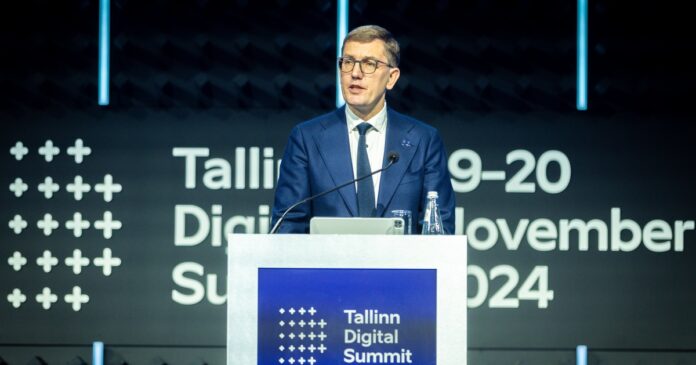TALLINN, Estonia (ChatnewsTV) — In a powerful opening speech at the 7th Tallinn Digital Summit, Estonian Prime Minister Kristen Michal urged democratic nations to collaborate closely to confront the escalating challenges of the digital era.
The summit, themed “Securing the Digital Tomorrow,” took place as the world marked the 1,000th day of the full-scale war in Ukraine, underscoring the urgency of defending digital spaces in a time of geopolitical unrest.
“The world in 2024 is changing rapidly, and not for the better,” Michal said, stressing the global challenges that threaten stability, from the ongoing conflict in Ukraine to mounting tensions in the Middle East.
“The struggle between democracy and autocracy is unfolding in the realm of technology, just as it is on the battlefield. Our task is to ensure that technology is used for democratic, not autocratic, purposes.”
In his address, Michal laid out three critical areas for action: defense innovation, societal resilience, and cooperation for good technology governance.
Michal stressed the importance of maintaining technological superiority in the face of cyber threats, emphasizing the need for continuous investment.
“Technological superiority is not a given; it requires constant attention and resources,” he said. “We cannot afford to lose this competition to non-democratic countries.”
Referencing the war in Ukraine, he noted how technology is reshaping modern conflict.
“The fastest innovation in military technology is happening in the trenches of Ukraine,” he said, praising the adaptability of Ukrainian forces under dire circumstances.
He also reaffirmed Estonia’s commitment to supporting Ukraine, highlighting the IT Coalition initiative with Luxembourg, which aims to provide Ukraine with secure digital infrastructure.
The prime minister underscored that digitalization goes beyond military use, focusing on societal well-being and resilience.
“Our growing vulnerability in the cyber domain is a reality we cannot ignore,” Michal warned, citing recent Russian hybrid operations against Estonia as examples of the evolving threat landscape.
“Our response must be to strengthen our resilience — at the societal, state, and democratic community levels.”
He emphasized the importance of attribution as a deterrent, pointing to Estonia’s public identification of Russian military intelligence as responsible for the 2020 cyberattacks on the country.
“Public exposure and attribution are crucial tools in holding aggressors accountable,” he said.

Michal called for stronger international cooperation to shape digital governance, celebrating recent milestones like the United Nations’ adoption of the Global Digital Compact.
“For the first time in history, the world has agreed upon common principles for digital cooperation,” he said, adding that Estonia’s role in global forums will continue, including chairing the Freedom Online Coalition in 2025.
The prime minister highlighted the success of regional collaboration within the Nordic-Baltic region, describing it as a model for broader global efforts.
“Let’s not just collaborate, let’s build together,” he urged.
“The Nordic countries and Baltic States are leading the way in digital solidarity, sharing information, and aligning their digital policies.”
Michal quoted Lewis Carroll’s Alice in Wonderland: “It takes all the running you can do, to keep in the same place. If you want to get somewhere else, you must run at least twice as fast as that!”
He encouraged the summit’s participants to rise to the challenge of a rapidly evolving digital landscape.
“May we all find the energy to run twice as fast in the ongoing digital race, to secure our digital tomorrow,” he said.
The Tallinn Digital Summit continues over the next two days, gathering global leaders and experts to discuss the future of digital technology and its implications for security and governance.
Editor: Gabriel Ani




